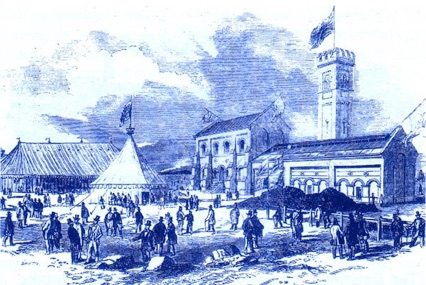In today’s rapidly changing world, the need for sustainable development has become more pressing than ever before. As concerns about the environment continue to grow, it is essential for cities to take proactive measures to protect precious resources like water. London, one of the most iconic cities in the world, has recognized this need and has been at the forefront of implementing innovative water conservation strategies. In this article, we will explore the various initiatives undertaken by the city of London to safeguard its blue lifeline and ensure a sustainable future for its residents.
The Water Challenge in London
London, with its bustling population and thriving industries, faces unique challenges when it comes to water conservation. The city relies heavily on its water supply for daily activities, ranging from household consumption to industrial processes. However, with a growing population and the threat of climate change, ensuring a consistent and sustainable water supply has become a crucial concern.
Water Consumption Patterns
Understanding water consumption patterns is the first step towards effective conservation. In London, the majority of water usage occurs in households, with activities such as bathing, flushing toilets, and washing clothes contributing to significant water consumption. Additionally, industries and commercial establishments also contribute to the overall water demand in the city.
Innovative Solutions for Water Conservation
To tackle the water challenge head-on, London has implemented a range of innovative solutions that are not only effective but also sustainable in the long run. These initiatives have not only reduced water consumption but have also created awareness among the residents about the importance of water conservation.
Smart Metering and Real-Time Monitoring
One of the key measures implemented by the city is the introduction of smart metering systems in households and businesses. These smart meters provide real-time information about water consumption, enabling individuals to monitor and regulate their usage more efficiently. By empowering residents with this knowledge, London has witnessed a significant reduction in water wastage.
Rainwater Harvesting
Another groundbreaking initiative in water conservation is the widespread adoption of rainwater harvesting systems. These systems collect and store rainwater, which can then be used for various non-potable purposes such as gardening, toilet flushing, and cleaning. By reducing the reliance on treated water for these activities, London has been able to conserve a significant amount of water.
Greywater Recycling
In addition to rainwater harvesting, the city has also embraced the concept of greywater recycling. Greywater refers to wastewater generated from activities such as showering, bathing, and washing clothes. Instead of allowing this water to go down the drain, it is treated and reused for purposes like flushing toilets and irrigating green spaces. This not only reduces the demand for fresh water but also prevents the unnecessary discharge of wastewater into the environment.
Water-Efficient Fixtures and Appliances
Recognizing the importance of individual actions in water conservation, London has encouraged the use of water-efficient fixtures and appliances. Low-flow showerheads, dual-flush toilets, and water-saving washing machines are just a few examples of the measures taken to reduce water consumption at the source. These small changes, when adopted on a large scale, can have a significant impact on overall water conservation efforts.
Public Awareness and Education
Creating awareness and educating the public about water conservation is crucial for the success of any sustainability initiative. London has implemented extensive public awareness campaigns to engage residents and businesses in the cause. These campaigns highlight the importance of water conservation and provide practical tips on how individuals can contribute to the effort. By fostering a sense of responsibility among its residents, London has been able to create a culture of water conservation.
Conclusion
In conclusion, London’s commitment to water conservation is evident through its innovative initiatives and sustainable practices. By implementing smart metering systems, rainwater harvesting, greywater recycling, promoting water-efficient fixtures, and raising public awareness, the city has taken significant strides towards protecting its blue lifeline. As the world grapples with the challenges of climate change and resource scarcity, London’s efforts serve as a shining example for other cities to follow. By prioritizing water conservation, we can ensure a sustainable future for generations to come.
